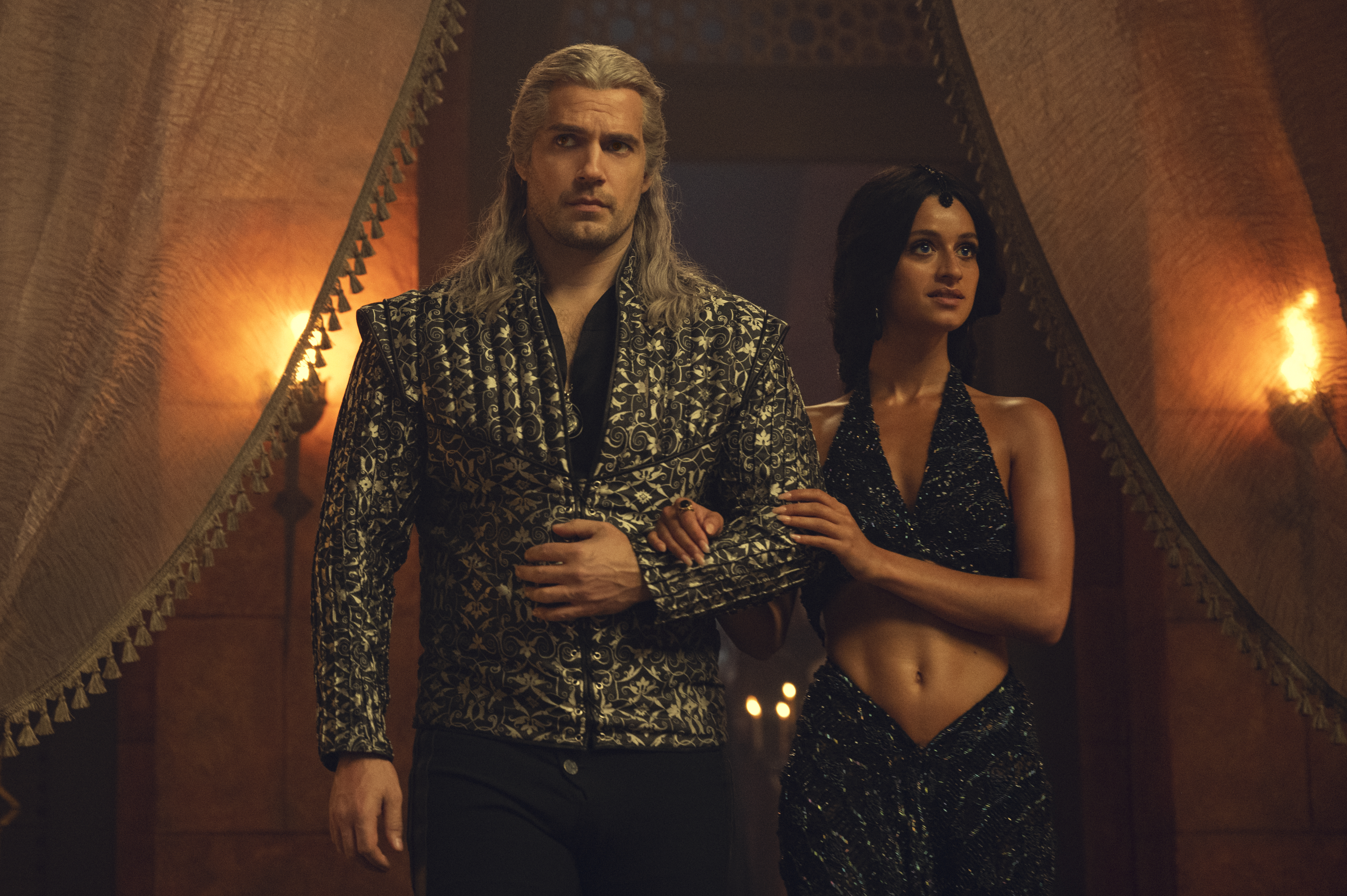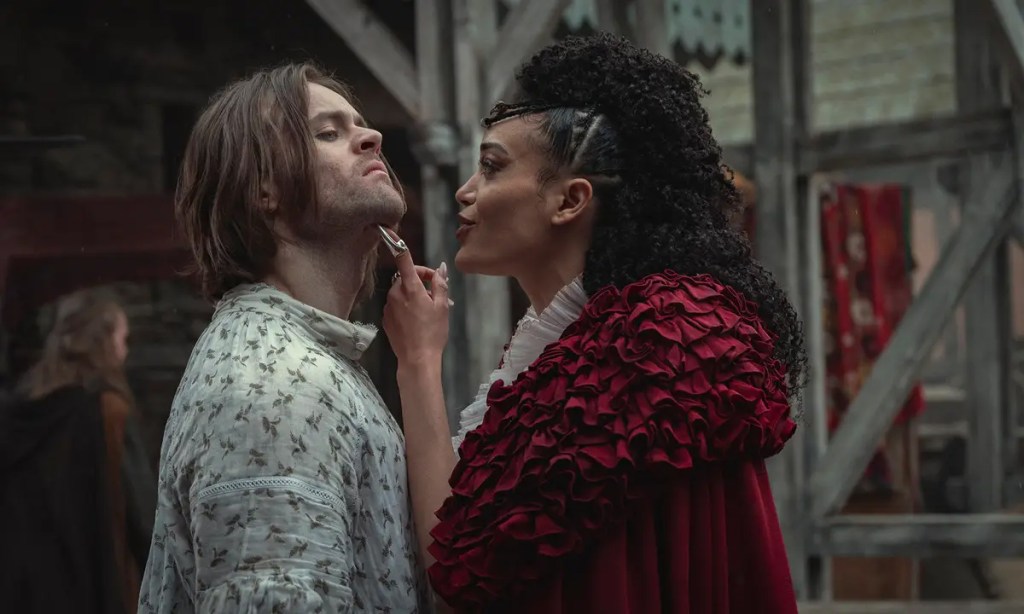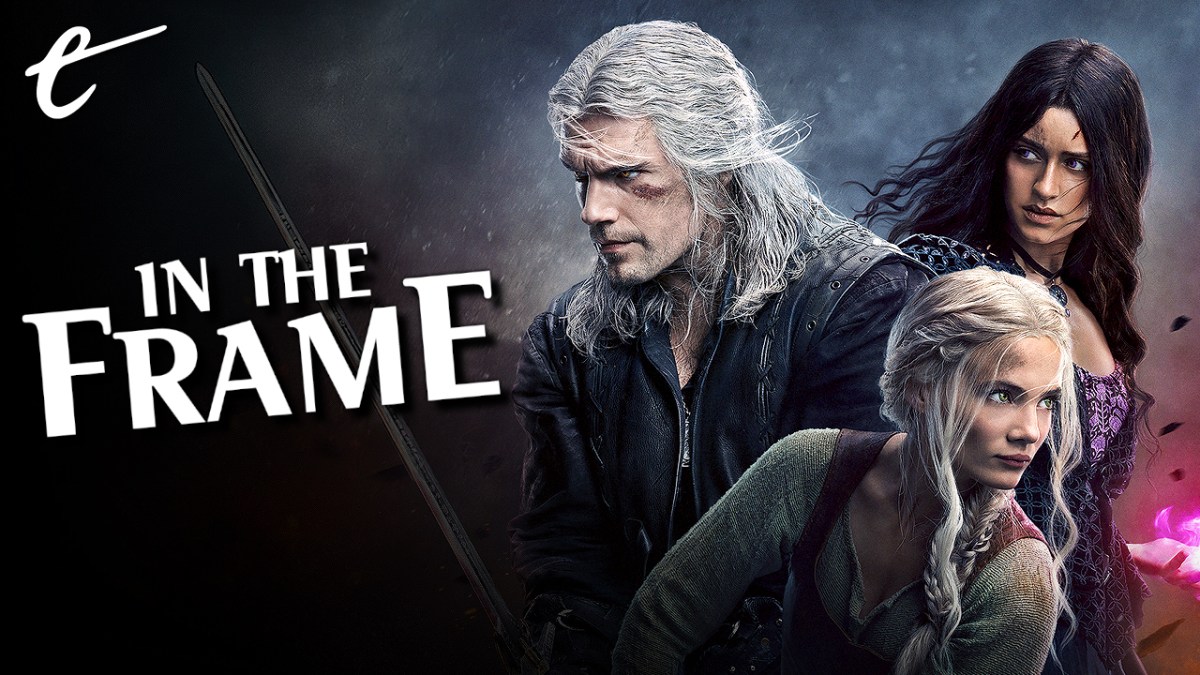The Witcher is often discussed in terms of Game of Thrones. It has emerged as one of the most successful literal-minded attempts by a major studio to produce “the next Game of Thrones,” an expensive blockbuster fantasy epic propelled by sex and violence. Netflix is evidently happy with what The Witcher has done for it, commissioning a spinoff animated movie and a prequel miniseries, positioning it as a mega-franchise-in-waiting for the streaming service.
This is reflected in how producer Steve Gaub talked about the recasting of the lead role, with Henry Cavill to be replaced by Liam Hemsworth. “We love everything that Henry gave us as Geralt, and now we’re really excited about what Liam can give us as a Geralt, much like there’s been different James Bonds, different Doctor Whos, different Spider-Mans,” Gaub argued. “We’re now one of those properties, and we aim to serve the property right and continue on with a really strong Geralt.”
There is perhaps a hubris in inviting these comparisons. After all, the James Bond franchise is the fifth highest-grossing franchise in movie history, Doctor Who holds the Guinness World Record for the longest-running science fiction show in the world, and the last Spider-Man movie is the seventh highest-grossing film of all time at the global box office. The production team on The Witcher might be getting just a little bit ahead of themselves in putting themselves in such company.
Then again, this has always been part of the appeal of The Witcher as a streaming series. The show works best as pulpy and enjoyable genre fare, but it arrived at just the right moment in television history to be treated like the jewel in the crown. The series premiered in December 2019, a month after the launch of Disney+ and The Mandalorian and shortly before the pandemic would push the streaming wars into overdrive. The Witcher was perfectly positioned to take advantage of this.

The Witcher has impressive production value. Netflix recently revealed that the combined budget on the first two seasons and the Blood Origin prequel came to $318.7 million. Divided across the total 20 installments of those projects, the franchise cost marginally more on a per-episode basis than the reported $15 million-per-episode budget on the final run of Game of Thrones. Henry Cavill reportedly earned $400k per episode of the first season and more than $1 million per episode for the second.
There’s a compelling conflict within The Witcher between its lavish production and its lurid plotting. While Game of Thrones was undeniably an expensive prime-time soap opera, it was also a medium-defining epic and an ambitious piece of political commentary. In contrast, and with no disrespect intended, the plotting on The Witcher often veers closer to that of older syndicated fantasy shows like Hercules: The Legendary Journeys or Xena: Warrior Princess, as The Nerdist demonstrated.
This tension between the obvious desire to emulate the scale and the spectacle of Game of Thrones with plotting closer to 1990s television is particularly obvious during the third season. The show is focused on the monster hunter Geralt of Rivia (Cavill), who has developed an unlikely surrogate family around himself. He has befriended traveling bard Jaskier (Joey Batey) and engaged in a complicated romantic relationship with Yennefer of Vengerberg (Anya Chalotra), known as “Yen.”
Geralt is also responsible for Cirilla “Ciri” Fiona Elen Riannon (Freya Allan), the young crown princess of Cintra. Geralt has sworn to protect Ciri, who finds herself at the center of an epic prophecy that will potentially decide the fate of the entire world. By the start of the third season, Geralt and Yen are essentially parents, trying to keep Ciri safe from those who would exploit her while giving her the skills necessary to protect herself.

This is the sort of simplistic and accessible allegory that drove turn-of-the-millennium pop fantasy like Buffy the Vampire Slayer. It’s an immediately relatable emotional hook and something that audiences can instinctively understand amid all of the show’s complicated lore and mythology. Geralt is another variation on the archetype of a stoic outsider who finds fulfillment in the unlikely role of patriarch. This dynamic is the heart of the show, and the third season works best leaning into it.
After all, the central tension of the third season is the threatened dissolution of this found family unit. “All I want is for us to stay together,” Ciri tells Geralt and Yen towards the end of the first episode. In his farewell letter, Geralt tells Yen, “You, Ciri, and I, we belong together.” Even when the family splits up, The Witcher keeps that theme of family in focus. Ciri travels with Yen, before breaking off to rejoin Geralt, ensuring both Yen and Geralt are constantly framed as parents.
Even when Geralt is separated from Yen or Ciri, the show keeps returning to that parent-and-child relationship. In the season’s second episode, Geralt encounters a young woman who bears a striking resemblance to Ciri (Frances Pooley) and who is convinced that she is Ciri. In the season’s third episode, Geralt visits Anika (Catherine McCormack), an old friend of his own mother (Frida Gustavsson).
Even Geralt’s profession is filtered through that lens of parenthood. He returns to monster hunting in order to earn enough cash to buy information from Codringher (Simon Callow) and Fenn (Liz Carr) about who is hunting Ciri. In the season’s fourth episode, Geralt teaches Ciri the intricacies of monster hunting as they deal with an aeschna to secure safe passage. None of this is especially nuanced or complex, but it works.

There’s also an undeniable element of camp to The Witcher. At one point, Jaskier seems to be caught in a pseudo-romantic best friend triangle between Geralt and his new friend Radovid (Hugh Skinner). To be fair, the show is being self-aware here, acknowledging accusations of “queerbaiting” in its treatment of the dynamic between Jaskier and Geralt while paving the way for an openly homoerotic relationship between Jaskier and Radovid. Still, the framing of the dynamic feels oddly 1990s.
More than that, The Witcher is willing to get openly goofy and silly in ways that feel at odds with its veneer of expensive prestige television. The season’s fourth episode has an entire subplot dedicated to Jaskier’s rivalry with a troupe of musicians led by Valdo Marx (Nathan Armarkwei Laryea). Those musicians carry across into the fifth episode, where they helpfully wander through the episode’s big social gala rendering the story’s subtext (“all is not as it seems”) as song lyrics.
However, all of this exists at odds with extended sequences where the third season of The Witcher feels compelled to wade into the familiar trappings of Game of Thrones. The show frequently cuts between the various kingdoms and courts of this fantasy world, dropping in on a truly expansive cast as they engage in plots and conspiracies to further their own interests. This is similar to the format and structure of Game of Thrones, but it really doesn’t work within The Witcher.
The show’s internal world isn’t rich or developed enough to support this expansive approach. None of the political actors are compelling enough to justify pulling focus away from Geralt. Indeed, most of them want the same thing: Ciri. This straightforwardness may not be the worst thing in the world. Given the long gaps between the show’s short seasons, the simplicity of character motivations might be a blessing, saving the audience the burden of keeping track of anything more complex.

Andrzej Sapkowski, author of the books that the show is adapting, has long argued that The Witcher was never designed to function in the same way as fantasy epics like The Lord of the Rings or Game of Thrones. “With the stubbornness of a maniac, I keep insisting that there is no actual world in my books!” he stated in an interview in 2005 (translated via Reddit). “When it comes to the ontology of this entire civilization, it is vestigial, it serves the plot, and is adjusted to make it fit.” The show’s approach is at odds with this.
These political scenes are often uncomfortable and clumsy, stopping the show’s momentum dead. In some sense, the show is aware of this. Geralt frequently voices his contempt for the politics of this fictional world. “Nations are invisible lines that people assign meaning to,” he tells Ciri at one point. In the season’s fifth episode, he rejects sorcerer Vilgefortz’s (Mahesh Jadu) overtures towards an alliance, arguing, “I shall respond to events. I’ll adapt with the world as it changes.” Geralt doesn’t want to be the star of a fantasy epic; he wants to play the word “fuck” like a harpsicord and take the occasional bath.
Still, as the third season races towards its conclusion, it seems like the central theme of the show is that Geralt cannot remain completely divorced from the politics of this world forever, that he must abandon his “neutrality” and must accept “the necessity of making a choice and joining the right side.” The Witcher must inevitably bend towards Game of Thrones, even though those impulses push the show to embrace its worst and least interesting self.
Then again, the third season of The Witcher arrives towards the end of an era. Streaming companies can no longer afford to lavish these sorts of budgets on this sort of fare. Services like Disney+, Max, and Paramount+ are cutting content. Netflix is structuring its blockbuster shows like Stranger Things so they release across financial quarters to help retain subscribers. Indeed, even the third season of The Witcher will be spread across the second and third quarters of 2023.
It seems like the days when a show could be structured like Hercules: The Legendary Journeys and budgeted like Game of Thrones are coming to an end. That’s a shame. The Witcher is most enjoyable when it’s not trying to be Game of Thrones, however much Netflix might want it to be. Still, if Netflix is going to continue tossing coin to its Witcher in this climate, the service is going to want to set the tune.






Published: Jul 3, 2023 11:00 am